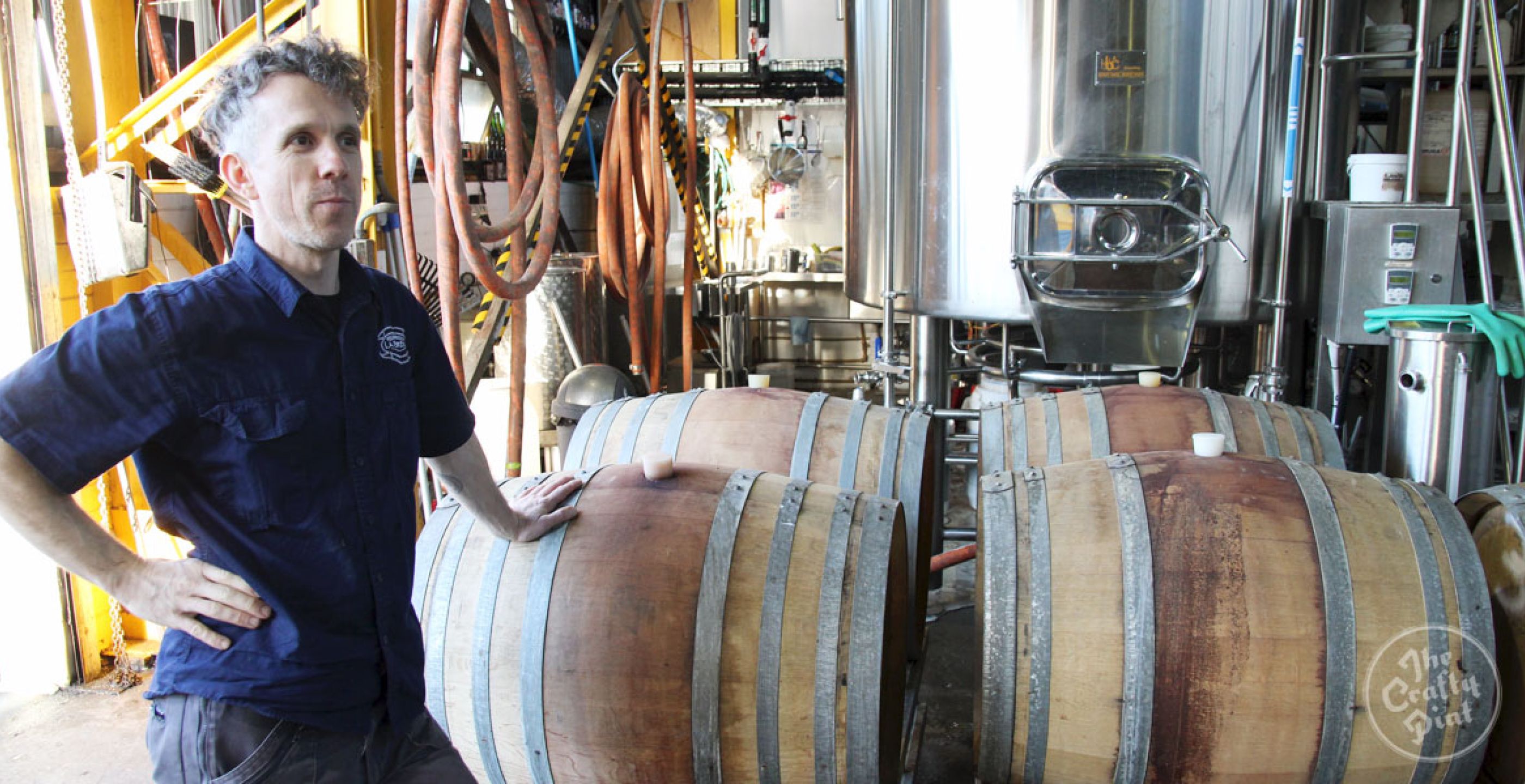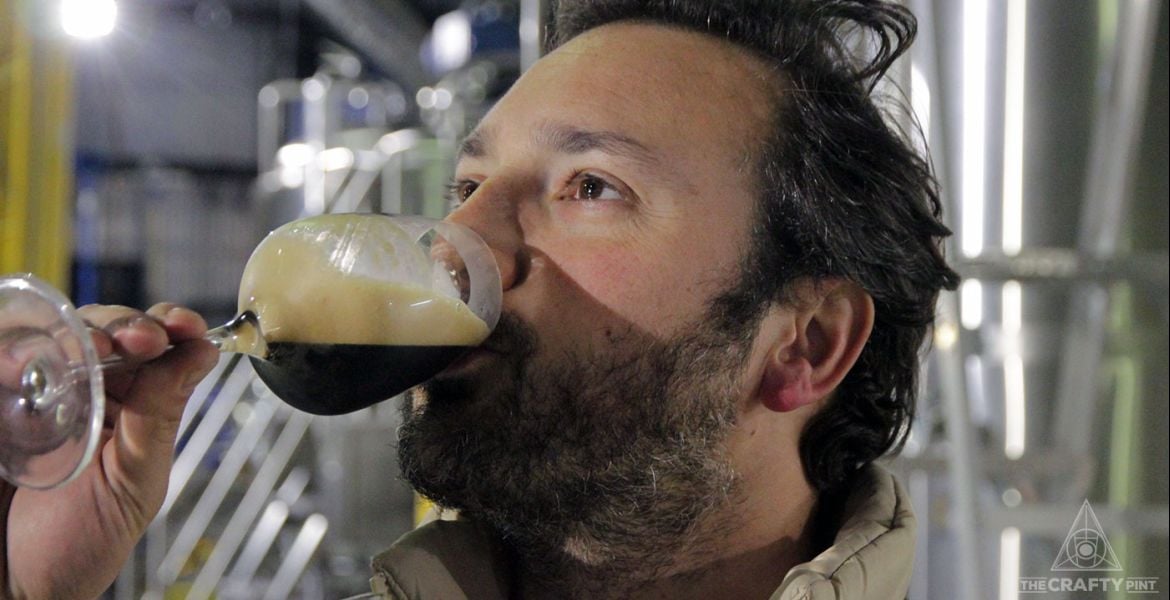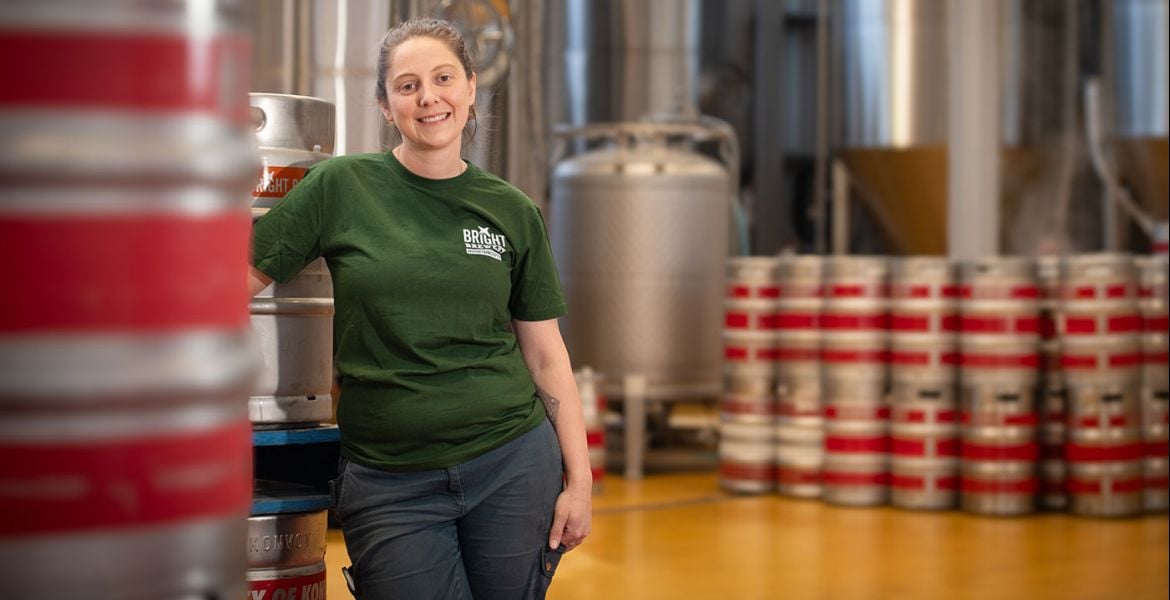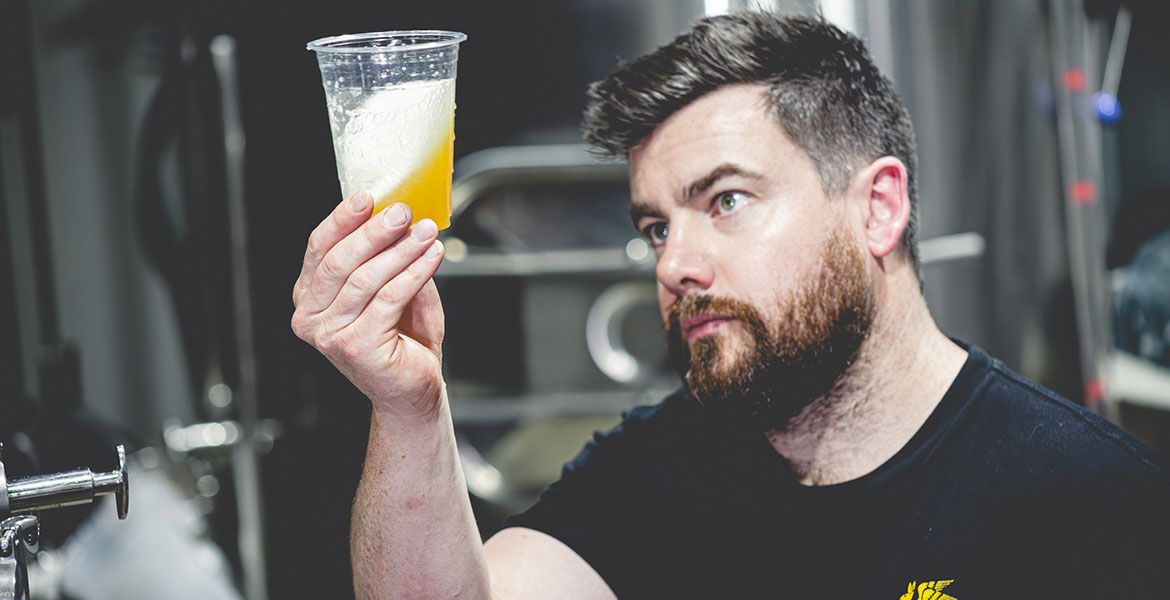As one of the brewery's founders and its driving force, Costa Nikias is the person most readily associated with La Sirène, the Melbourne based "urban farmhouse" brewery that specialises in French and Belgian influenced beers, including a broad range of saisons and sours.
In 2016, he was joined at the Alphington brewery by Ben Turley (above), a brewer who had previously been plying his trade at Beavertown in London, joining the brewery in its early brewpub phase and assisting through multiple stages of expansion. Their coming together has proved to be something of a meeting of minds as the brewery embarks on ever more diverse and experimental beers, including 100 percent spontaneously fermented ales, barrel-ageing and the use of a coolship.
So, in something of a departure from the norm, we thought we'd approach Ben rather than Costa for this Brew & A to find out more about him, his experiences at one of the UK's leading microbreweries and what we can expect from La Sirène in the future.
Why are you a brewer?
Wow, easy question straight up! First and foremost, I got into brewing for the love of beer, and wanting to spend my day making something. Something I cared about.
But what really hooked me was the process. The mix of scientific discipline, creativity and hard, physical work. The sensory journey and the fascination of fermentation are really enjoyable for me too. Then the reward of the finished product, after weeks / months / years of nurturing.
I should also mention that the craft beer movement is full of a lot of wonderful and inspirational people and that is a big part of why I have stuck at it.
What would you be if you weren’t a brewer?
Maybe a horticulturalist or something to do with plants. Growing stuff is really rewarding and elemental.
What was your epiphany beer?
I honestly can’t say there has been a single epiphany moment. Definitely more of long, meandering sequence for me.
Moving to the UK and discovering real ale was probably the first time I really connected with something quite different from a sensory perspective.
How did you first get involved in the beer world?
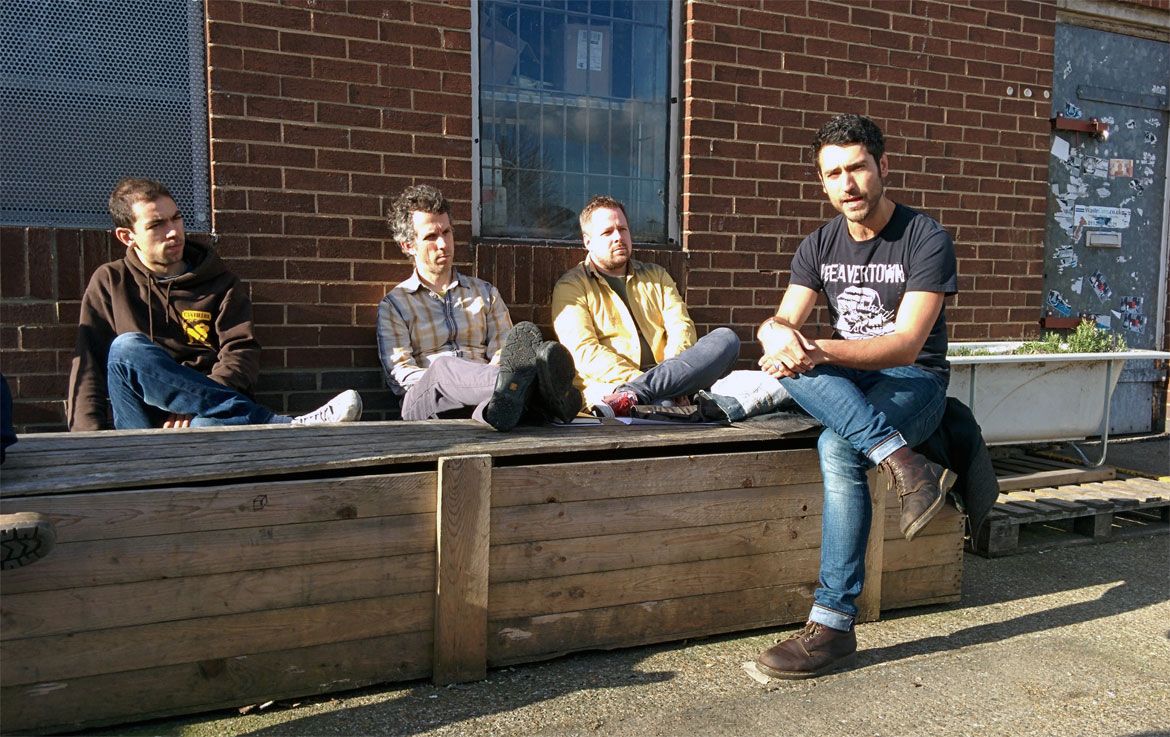
I was desperate to get away from my corporate day job since day one and, ever since dabbling in home brewing at uni, I had an occasional inkling that I’d like to make beer and maybe open my own brewery. It was really just a vague notion, and I had no idea what it would entail. I was always heavily involved with music, playing in bands, producing etc, so I think that kept the brewing aspirations at bay for a long time.
One Saturday in London, around four years ago, I decided to go and visit Kernel Brewery to buy some beers, have a look around and maybe ask about volunteering. The guy who showed me around (James Rylance, now at Redchurch Brewery) had just started working at a tiny brewery called Beavertown. I had never heard of them, but James invited me to go help on a brew day the following week.
I had recently negotiated a four-day work week, so from that moment on I spent my day off turning up at this little brewpub at 6am and helping brew 700 litre batches. I remember the first two batches were a rye IPA and both had badly stuck sparges. One was aborted altogether.
The fermenters were a few blocks away in a little warehouse, so we pumped the wort into the back of a van, drove it to the warehouse and then pumped it into an open top fermenter with a plastic lid. This was my introduction to commercial brewing.
I started all grain homebrewing at the same time. That was basically day zero for me. I quickly realised that up until this point I had no idea about brewing or tasting beer.
Six months later Beavertown were getting ready to move out of the tiny pub kitchen and into a warehouse and they offered me a full time job, which I jumped at. It was a pretty dingy little warehouse, and we cut the most pathetic drain from one side to the other. I started out mostly packaging, organising the warehouse, squeegeeing water up hill etc. Within a few months, I was brewing and running the production. We were still small at that stage, with five or six staff, brewing seven hectolitres five or six times a week, bottling and kegging by hand (all refermented in package) – and we had no forklift.
The place was becoming pretty squalid, and we were already outgrowing it, so we started planning for a big expansion after six months and, just over 12 months after I started, we were moving again to a much bigger place and upscaling to a 50 hectolitre brewhouse, with double batch fermenters, bottling line, canning line etc. Quite a big project, and overwhelming at times, but brilliant experience.
To cut a long story short, I ended up being made Lead Brewer and hung around for another two years. Towards the end, I phased myself out of the day to day production and started doing a lot of work with various projects including working with barrels, organising collaborations and setting up a lab. When I left at the end of 2015, there was around 35 staff and we were just about to start brewing 12 times per week. It was really quite an amazing journey given where I started.
How did you then end up at La Sirène when Sydney was the plan once you'd decided to return to Australia?
In all honesty, my plan was to try and start my own brewery when I left London, probably around Sydney, pretty much from the start of my days at Beavertown. For various reasons, I was losing the drive to do this and decided to keep an eye out for something interesting in Oz. It had been four years since I last visited, so before I started working in brewing, and even though I was always researching the scene out here, it was impossible to really know what was going on, what I liked etc.
I was aware of La Sirène for a while and from afar they were one of a very few breweries that really sparked my interest, especially since I had developed a real love of Belgian beer as well as mixed culture fermentations and working with barrels. It was exciting to see that La Sirène was totally focused on this stuff, although I was curious to taste the beers before I got too excited.
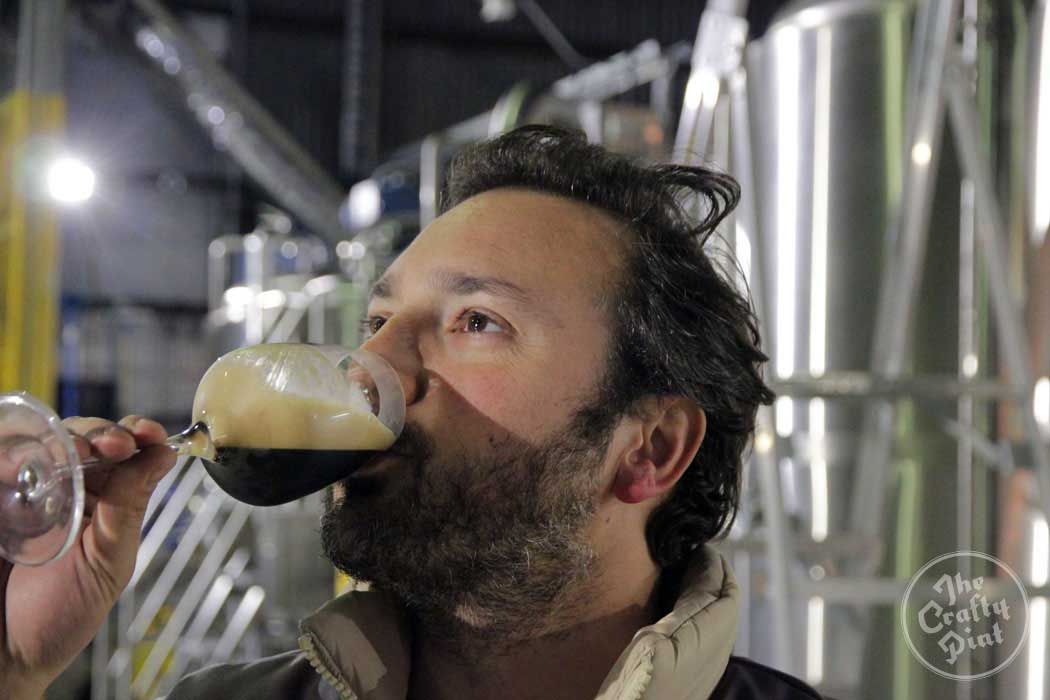
Rather fortuitously, they were advertising for a brewer around the time I was leaving London, so Costa and I caught up for a couple of chats, a tasting and a spot of barrel sniffing. I was really into the spirit of the place and the beers were excellent. Costa and I share a lot of the same ideas about creativity and experimentation in brewing. It seemed like a really good fit. They offered me the job – who was I to turn them down?
Five months on, I still feel I made the right choice.
What's the best beer you’ve ever brewed?
Probably a beer called Moose Fang, a Beavertown collaboration with Bellwoods from Toronto. It was a big brown which was split in two. One half became a beautiful dry-hopped imperial brown, the second half was aged in Armagnac barrels with dates and figs and then infused with vanilla, orange zest and cacao.
What's your single favourite ingredient to use in beer?
Citrus zest is pretty great.
Are there any beers you’ve brewed that might have been better left on the drawing board?
Not really. Even the stupid ones come good with time. Even that homebrew saison I dry hopped with Amarillo, eucalyptus and tomato leaves!
If you could do a guest stint at any brewery in the world, which would it be and why?
There are many but I’m going for Crooked Stave because their beers are just so good, and they’re in Colorado. Not to mention owner Chad Jacobsen’s pioneering work on Brettanomyces.
Which local (Aussie or Kiwi) breweries inspire you?
Tough one. I’m not long back in the country, after 13 years away, so I am still getting my head around the scene. Generally, I like anyone who goes the extra mile to make interesting stuff. Definitely people like Garage Project, Boatrocker, Nomad, Batch, Bridge Road – and I have to mention La Sirene here if we’re talking about inspiration.
What are your plans / hopes / fears / challenges from being involved in the coolship program at La Sirène?
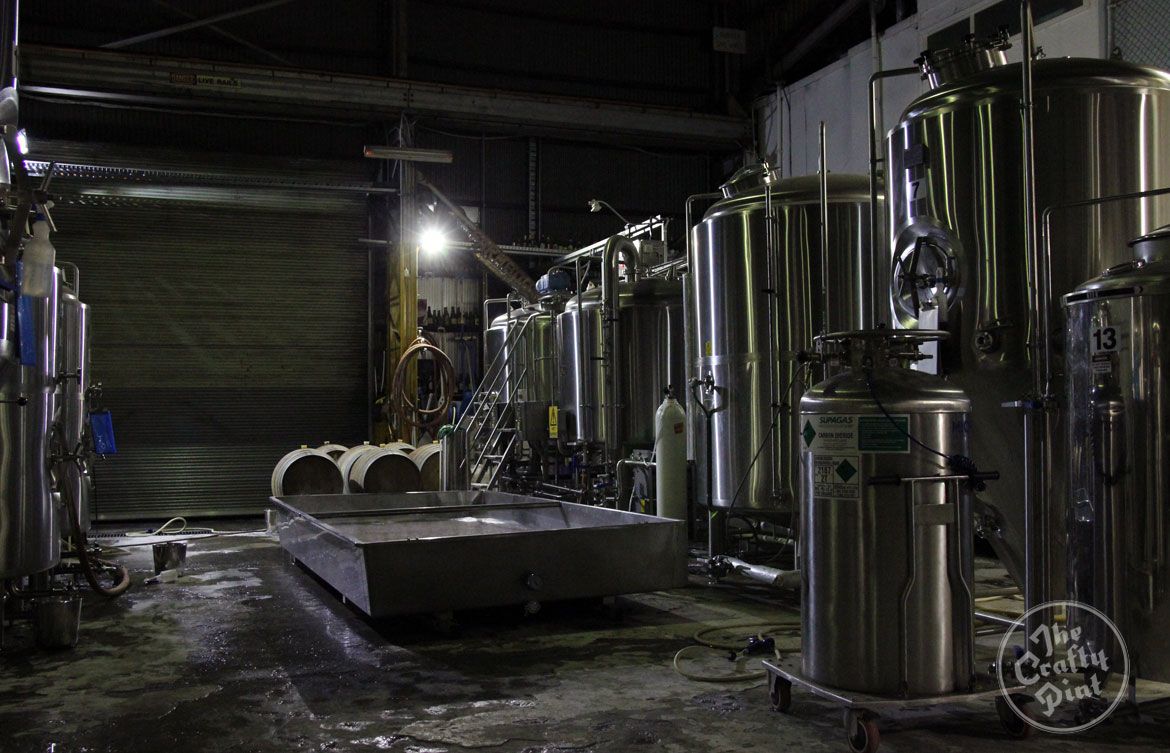
At La Sirène, they have been dabbling in spontaneous fermentation for many years, and the coolship is a natural progression along this spectrum. I just see it as a continuation of the experiment, albeit on a bigger scale. Certain aspects can be controlled by us brewers, but ultimately we are putting faith in our indigenous wild yeasts and bacteria to fight it out and come to a harmonious resolution. We give them a year or three to do it, and we allow our idea of an acceptable outcome to be fluid, rather than rigid.
Costa uses the phrase "beer with a sense of place", and this is really the essence of spontaneous fermentation. Our brewery is on the edge of a nature reserve, creek and nursery and, at times throughout the fermentation, you really get a sense all these factors are at play. It's mysterious and fascinating.
Most brewers are intimidated by wild yeast and bacteria, and that's because they can really throw a spanner in the works if they turn up uninvited. At La Sirène, we wholeheartedly embrace these indigenous microbes in many of our beers, which I personally find liberating as a brewer!
While we wait for the coolship experiments to come of age, you can expect a lot of small batch barrel-aged releases, much of which is the result of three or four years accumulation. And probably a bit of hoarding.
What's your desert island beer – the one to keep you going if you were stranded for the rest of your days?
Orval would do nicely.
And what would be the soundtrack to those days?
I couldn’t survive with just one album – I think I’d probably make my own instruments and orchestra to keep me sane. Failing that, I could probably get by with a KEXP stream [a public radio station broadcasting out of Seattle].
If you couldn’t have beer, what would be your tipple of choice?
Proper cider. None of this diluted and back-sweetened garbage!
What's the one thing you wish you’d known before becoming a brewer?
Biochemistry.
And the one piece of advice you’d give to anyone considering a career in craft beer?
Be patient – there is way too much to learn even in one lifetime.
Thanks, Ben. Looking forward to sampling many more of the beers you're creating with Costa.
You can check out other Brew & A interviews here as well as our piece on another Aussie who worked at Beavertown and is now at the helm at Brouhaha in Queensland.
Photo of Beavertown pilfered from the brewery's website.



